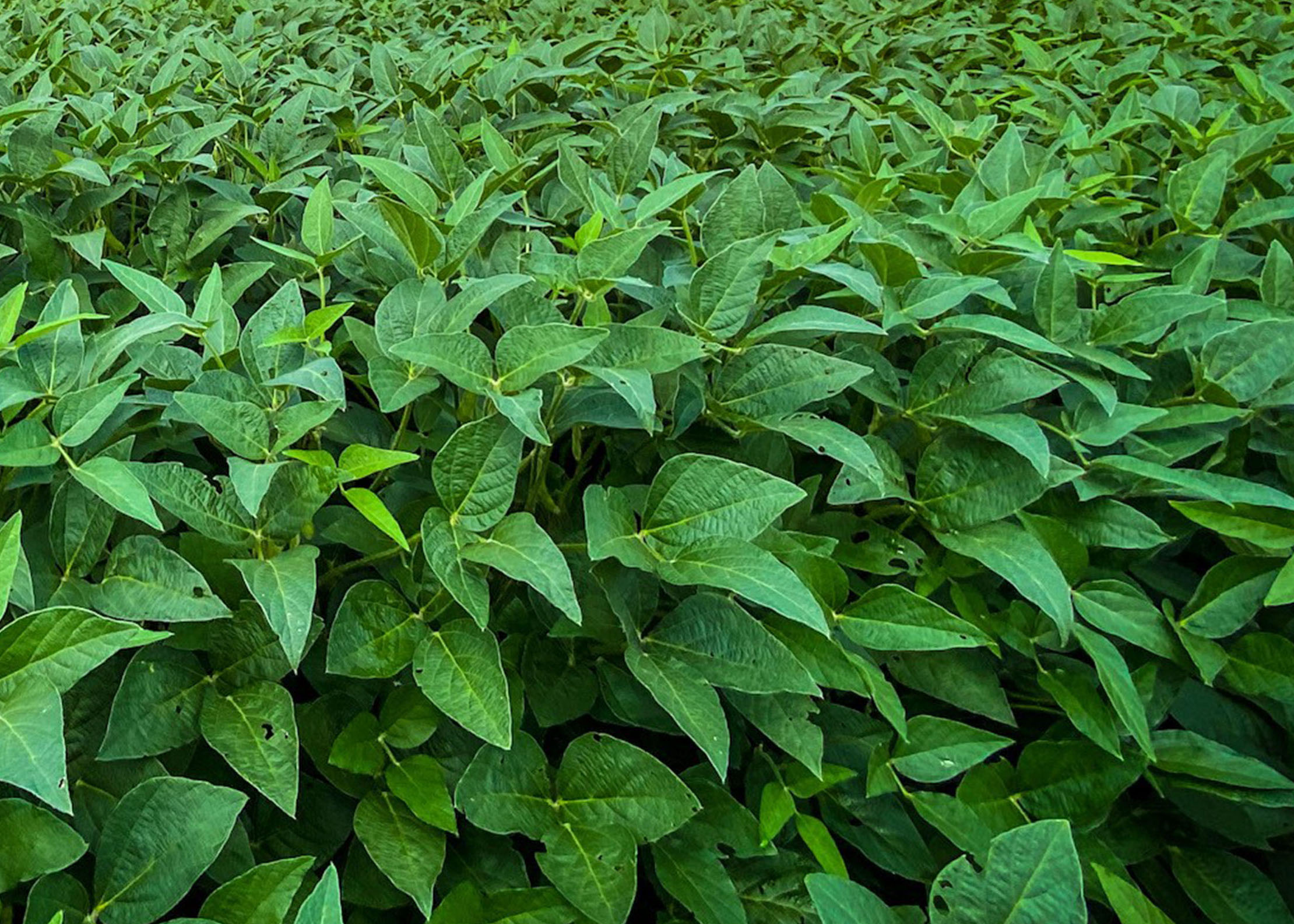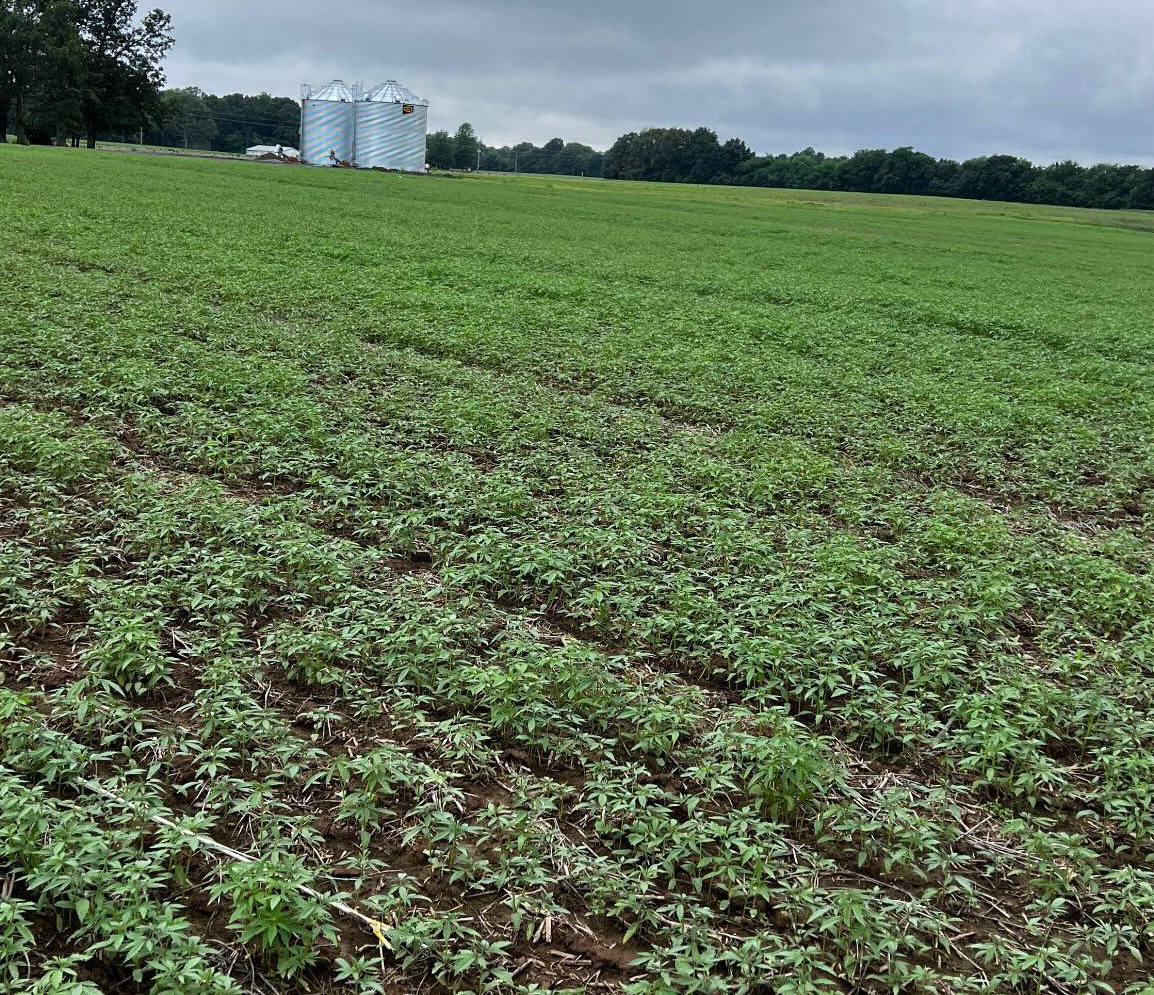The 2024 "Coolest Thing Made in Kentucky" has an Ag Connection
Posted on Jun 13, 2024
HempWood is bringing two ag commodities together to make an innovative product.
The second annual Kentucky Association of Manufacturers (KAM) 2024 Coolest Thing Made in Kentucky Tournament winner is HempWood, an innovative lumber alternative that uses hemp and a soy-based glue to make organic flooring and other products. The contest is presented by Kentucky Farm Bureau (KFB) Insurance.
"Being known as the Coolest Thing Made in Kentucky is an honor," said HempWood founder Gregory Wilson. "We are an agriculture tech startup from Murray State in far western Kentucky, and winning this competition is proving to people what we can do."
John Sparrow, Executive Vice President & CEO of KFB Insurance said the organization is proud to support the fun and interactive Coolest Thing Made in Kentucky competition.
"This contest has not only generated a lot of interest across the state but it's also highlighted just how many amazing and useful products are made right in our own backyard," he said. "We congratulate HempWood on their victory, and, from one homegrown company to another, we think it's extra special to see their success growing from deep roots within the Bluegrass State."
In the beginning
Wilson said the concept of HempWood came from his work in the bamboo industry while working in China.
“We had done some testing of putting hemp into a similar process that we did with bamboo to make logs out of it,” Wilson said. “Technically it worked, and conceptually we thought it was a good idea.”
With the passage of the 2014 Farm Bill, hemp research was allowed in this country after years of being banned and the 2018 Farm Bill allowed for hemp production.
Wilson said in searching for the best place to grow hemp in the United States, a picture of Dr. Tony Brannon at Murray State University (MSU) came up. After a phone call to Brannon emphasizing his desire to begin a start-up business using hemp to produce products rather than bamboo, Wilson would soon discover that Murray would be the choice.
“While other states turned us down, Murray State loved the appeal of doing something cool and new and putting two dozen jobs in the community, plus giving another crop to the farmers to grow,” Wilson said. “So, they said yes when everybody else said no.”
MSU’s Hutson School of Agriculture planted the first legal agricultural hemp research plot in the state of Kentucky, but the state had a storied history of hemp production beginning in 1775. At one time during the 19th century and early 1900s, Kentucky was the largest producer of hemp in the country.
Wilson said knowing that the crop could indeed be grown successfully here was a plus when it came to finalizing the choice of Murray.
“It only makes sense that nature would do what it used to do and this area would be a good place for growing hemp again,” Wilson said. “That means your supply chain will be easier and the local government was friendlier.”

Becoming a local company
Tommy Copeland, a former MSU student now serves as the plant manager at HempWood and has been involved since the beginning seeing it grow from the company’s earliest stages.
“I actually grew up on a hog and row crop farm in Indiana, went to Murray State, and was working at one of the school’s farms when I was introduced to Greg,” he said. “Going into the summer before my senior year of college I started as an intern with him and my first week at HempWood was the week after the concrete got poured. So, I’ve seen the hemp crop grow and installed the press and all the equipment we use seeing this build from the ground up.”
The company has since contracted with local farmers for their hemp crops and utilized soybean producers for the soy-based adhesive used as part of the manufacturing process.
Scott Lowe, a local farmer from Murray is one of the hemp producers working with HempWood. He had been involved in growing CBD hemp starting in 2018 but had begun to scale that back when hearing about HempWood
“I was intrigued by the hemp, and I wanted to see it work so, I talked to Greg and Tommy and was able to get an agreement with them to grow a few acres,” Lowe said. “This year we are growing 40 to 45 acres for them.”
The Lowe family has been dark tobacco producers for years but with an up-and-down market, they have been diversifying the operation more.
“Growing hemp for HempWood came along at a good time and our goal as a family farm is to be as diversified as we possibly can,” he said. “This has opened up an opportunity for us to do that even more and see a little better income per acre than a corn or soybean crop. HempWood is making a good product and it fits well into our plan."
The soybean connection
In addition to the research related to hemp production, MSU Department of Chemistry Professor Kevin Miller has been instrumental in helping to develop the soy-based adhesive used by HempWood instead of one that contains formaldehyde.
He began working with HempWood in 2019 having had adhesives experience with former companies before coming to MSU.
“Greg and his team were very adamant about having an adhesive that was non-toxic and plant-based and I was tasked to take (existing) technology, formulate it, and apply it to hemp wood,” Miller said.
That technology came from Oregon State where Professor Kaichang Li had spent a number of years developing a soy-based adhesive that could mix soy protein, with a non-formaldehyde base.
“When mixing the two at the correct pH, they will react with one another and form a thermoset, so essentially, a set adhesive, just like so many off-the-shelf type adhesives that you would get at Lowe's or Home Depot,” Miller said.
After months of working through several factors, Miller said a usable adhesive has been developed that is applied to the hemp wood.
“The adhesive is in the hemp, it coats the hemp, so when you get a block of HempWood, it contains up to 15 percent of that cured adhesive in it,” he added.
From an agricultural perspective, Miller said the HempWood products are a true value-added product.
“Calling it a value-added product I think is very accurate in marrying two very important agricultural economies in Kentucky,” he said. “And we have students who are involved with this, some of whom are not really agriculture people but then they find out how cool the technology actually is. You've heard of 'Farm to Table,' this is 'Farm to Lab.'"
As exciting as this new venture is for local hemp producers contracting with HempWood, it is also good news for soybean producers in the area.
Glenn Howell, a state KFB director and member of the Kentucky Soybean Promotion Board said finding new markets for soybean producers is always a good thing.
“Any new market for soybeans is great and another outlet for our product,” he said. “New opportunities are very important and it’s also good news to have a new company in this area that is creating jobs and producing a great product.”
Lowe agrees. He said HempWood has a system that works and is making a good product that works.
“It’s a product that's cool, and different, and neat-looking,” he said. “It's durable and it seems like this is really taking off. Fortunately, having Murray State right here in our back yard has made for a good working relationship. “
For more information about HempWood, go to hempwood.com.
Comments